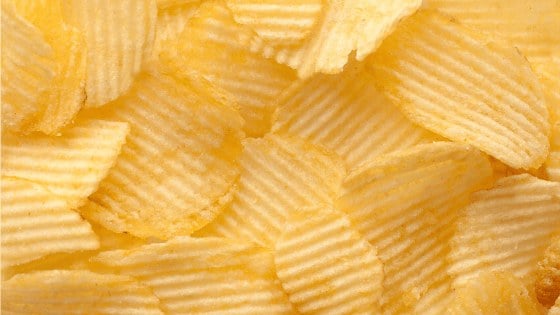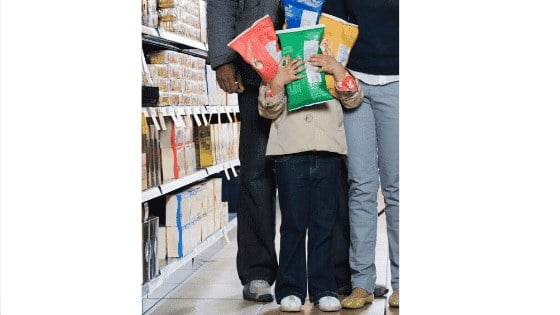
How To Recycle Chip Packets: Are Chip Packets Recyclable? ♻️
How To Recycle Chip Packets ♻️: Barbecue, cheese and onion, sour cream: you name it!
I know that some of you reading right now are slouching lazily at home; reading this blog through your phones or computers while eating a bag of chips or crisps, indulging in that ohh-so mouthwatering flavour! But, then you ask yourselves “Are chip packets recyclable in Australia?” and if so, how do you recycle chip packets in Australia?
>Download Now: Free PDF Business Owners Guide To Commingled Recycling Bin Services
Luckily, your answers will be provided in this blog.
While you’re at it, do you want to know if Lego bricks are recyclable, too? Then, check out our blog on recycling Legos!
A bit about Waster
Before moving on to the main topic on how to recycle chip packets, let us first introduce Waster.
For your information, Waster implements proper waste management for smart businesses. Moreover, Waster provides all waste bin collections on flexible 30-day terms and do not charge hidden extras such as bin rentals, sites fees, etc. We can even help you recycle your chip packets!
Click on the blue button below for more information.
READ: Waste Management And Technology 📀
Without further ado, let us get back on the topic of recycling chip packets!
Cause of environmental problems
Some 300 million tonnes of plastic are produced every day, according to this study. Every day, 8 million metric tonnes of plastic end up in our oceans.
Did you know that in the United Kingdom, people consume more nuts, crackers, and chips than all of Europe? According to a Mintel report, about 90 per cent of British adults consume chips.
To emphasise, they consume around half a billion chips every day, totalling at about 17 million potatoes daily.
Manufacturers produce about 20 million plastic packets to accommodate the chips people eat every day.
Aluminium and other plastic mixes make up a chip packet which cannot be separated, hence making it almost impossible to recycle. We have seen this in the past – where items made from a mixture of materials are much harder to recycle. By that time, it was still unknown if chip packets are recyclable.
Every day, millions of these were sent to landfills, therefore filling landfills and making it unsustainable. But today, environmentalists and scientists alike discovered ways on how to recycle these potato chip bags.
How to recycle chip packets: yes, you can!
Let me say it: yes, you can very much recycle chip packets.
According to Cool Australia, they are part of the top 10 things you did not know you could recycle. Here is the list:
- Soft Packaging (including chip packets)
- Printer Cartridges
- Coffee Pods
- Mobile Phones
- Batteries
- Cigarette Butts
- Bras
- Toothpaste Tubes and Toothbrushes
- Triggers and Pumps on Beauty and Cleaning Products
- Old Blankets and Towels
Though they cannot be put in single-stream recycling bins; as they are made from aluminium over-laid with polypropylene or low-density polyethylene film, they can still be recycled by other means.
Speaking of aluminium, have you checked out our blog on recycling aluminium yet? If not, have a look!
The metal layer serves as a shield against water and oxygen to preserve the quality of the chips until consumption.

According to TerraCycle, they recycle chip packets through a process called upcycling.
Upcycling
Upcycling means reusing discarded materials and turning it into something even better. Additionally, it differs from reusing materials because the intention of the object or material changes. Here is an example: TerraCycle recycles chip packets by turning them into casual shoes.
In the US, there was a similar program wherein you can also send your chip packets to be recycled. Frito-Lay collects your chip bags and ensures that they will be up-cycled. They turn them into useful items such as clipboards, tote bags, trash cans, and more!

To quote, they urged and informed people to “imagine a future where your chip bags won’t end up in landfills”.
Walkers, a famous chip brand in the United Kingdom, also implemented collections of chip packets to recycle. I will discuss the reason why in a just a moment. The idea is that you collect a minimum of 8kg and a maximum of 30kg of collected chip packets into a collection box and put them in the designated drop-off locations for collection.
How to recycle chip packets: innovation coming?
Last December 2018, Walkers came up with a recycling scheme after it was protested by people demanding change. This was due to the fact that it helped fuel the innumerable amounts of waste scattered in the sea and streets – with them contributing to more than 7,000 tonnes of non-recyclable chip packets every minute.
The downside of it is that even though they pledged and created a special scheme to collect and recycle their chip packets, only 3 million of the 4 billion packets Walkers produced are recycled.
They pledged that in 2025, they will make sure that their chip packets are 100 per cent recyclable, compostable, or biodegradable.
Good news: materials that can make chip packets more environmentally friendly.
According to an article by Newscientist on chip packs, researchers have come up with a material that can replace the metallic film that chip packets have in order to make the recycling process easier. It is a very thin layer called nanosheet. Furthermore, it is made of amino acids and water applied to a plastic film (polyethylene terephthalate, or PET, which most plastic bottles of water are made of). The eco-friendly building blocks of amino acids and water appear to make a material safe for use with food, said by Dermot O’Hare of the University of Oxford. “In terms of the chemistry, that was the breakthrough, making synthetic nanosheets using non-toxic materials.”

Although very promising, O’Hare says that we should not expect to see this type of material for at least four more years.
Basically, researchers observed that it performed 40 times better than the metallised film. Luckily, it is also a monomaterial type of packaging, meaning it only has one material, making recycling very much possible!
Waster: waste management for small and medium businesses!
Want to turn your place into a garbage-free environment? Luckily, Waster is here to help you with all of that!
Waster focuses on helping Australian businesses delivering low-cost and excellent customer service. You never have to worry about disposing of garbage such as plastic drinking straws!
As you have read the article, you should know that Waster has also partnered up with TerraCycle to help with the fight against pollution. Take a look at our Snack Wrappers – Zero Waste Box and avail now!
For more enquiries, call 1300 WASTER (1300 927 837) or enquire via email in enquiries@waster.com.au now.
Leave a Reply Cancel reply

Product categories
Most Popular Posts
-
Commercial Waste Management Services: Reduce Waste Collection Costs! 🚍
-
Medical Waste Disposal: Everything You Need To Find Out In 2024! 💉
-
Rubbish Removal Sydney 2024: Better Bin Collections For Business ✅
-
Clinical Waste Disposal 2024: What To Know About Business Clinical Waste ⚕️
-
Secure Document Destruction 2024: All About Security Bins Shredding 🔒
-
Free Cardboard Recycling 2024: Can I Get Free Cardboard Collection? 📦
-
Confidential Paper Disposal Bins 2024: What You Need To Know About Shredding! 🔒
-
Recycling Bins Australia 2024: Recycling Can Boost Your Profits! ♲
-
Commercial Wheelie Bin Collection: What Businesses Need To Know In 2024 🗑️
-
Commingled Recycling 2024: Why Commingled Bin Is Key To Recycling 🍾













